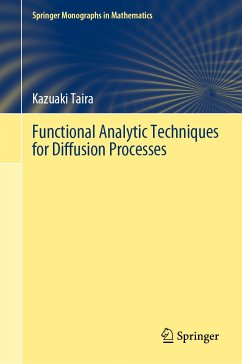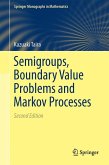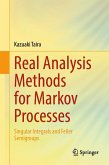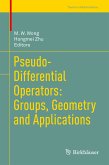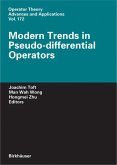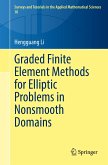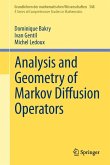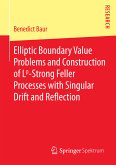This book is an easy-to-read reference providing a link between functional analysis and diffusion processes. More precisely, the book takes readers to a mathematical crossroads of functional analysis (macroscopic approach), partial differential equations (mesoscopic approach), and probability (microscopic approach) via the mathematics needed for the hard parts of diffusion processes. This work brings these three fields of analysis together and provides a profound stochastic insight (microscopic approach) into the study of elliptic boundary value problems.
The author does a massive study of diffusion processes from a broad perspective and explains mathematical matters in a more easily readable way than one usually would find. The book is amply illustrated; 14 tables and 141 figures are provided with appropriate captions in such a fashion that readers can easily understand powerful techniques of functional analysis for the study of diffusion processes in probability.
The scope of the author's work has been and continues to be powerful methods of functional analysis for future research of elliptic boundary value problems and Markov processes via semigroups. A broad spectrum of readers can appreciate easily and effectively the stochastic intuition that this book conveys. Furthermore, the book will serve as a sound basis both for researchers and for graduate students in pure and applied mathematics who are interested in a modern version of the classical potential theory and Markov processes.
For advanced undergraduates working in functional analysis, partial differential equations, and probability, it provides an effective opening to these three interrelated fields of analysis. Beginning graduate students and mathematicians in the field looking for a coherent overview will find the book to be a helpful beginning.
This work will be a major influence in a very broad field of study for a long time.
Dieser Download kann aus rechtlichen Gründen nur mit Rechnungsadresse in A, B, BG, CY, CZ, D, DK, EW, E, FIN, F, GR, HR, H, IRL, I, LT, L, LR, M, NL, PL, P, R, S, SLO, SK ausgeliefert werden.
Es gelten unsere Allgemeinen Geschäftsbedingungen: www.buecher.de/agb
Impressum
www.buecher.de ist ein Internetauftritt der buecher.de internetstores GmbH
Geschäftsführung: Monica Sawhney | Roland Kölbl | Günter Hilger
Sitz der Gesellschaft: Batheyer Straße 115 - 117, 58099 Hagen
Postanschrift: Bürgermeister-Wegele-Str. 12, 86167 Augsburg
Amtsgericht Hagen HRB 13257
Steuernummer: 321/5800/1497
USt-IdNr: DE450055826
Bitte wählen Sie Ihr Anliegen aus.
Rechnungen
Retourenschein anfordern
Bestellstatus
Storno

